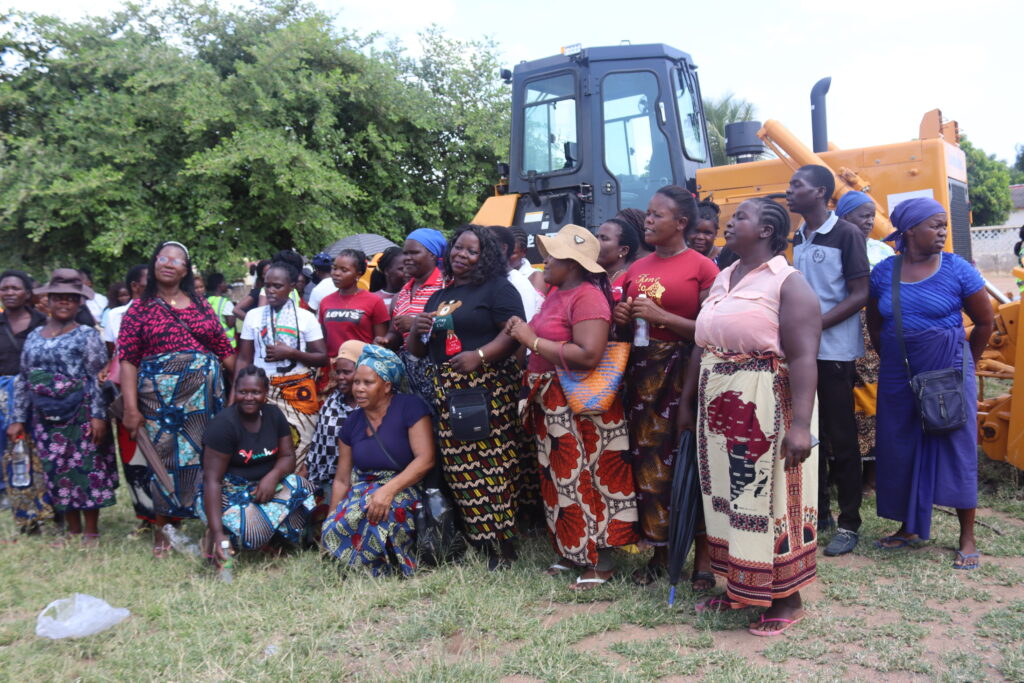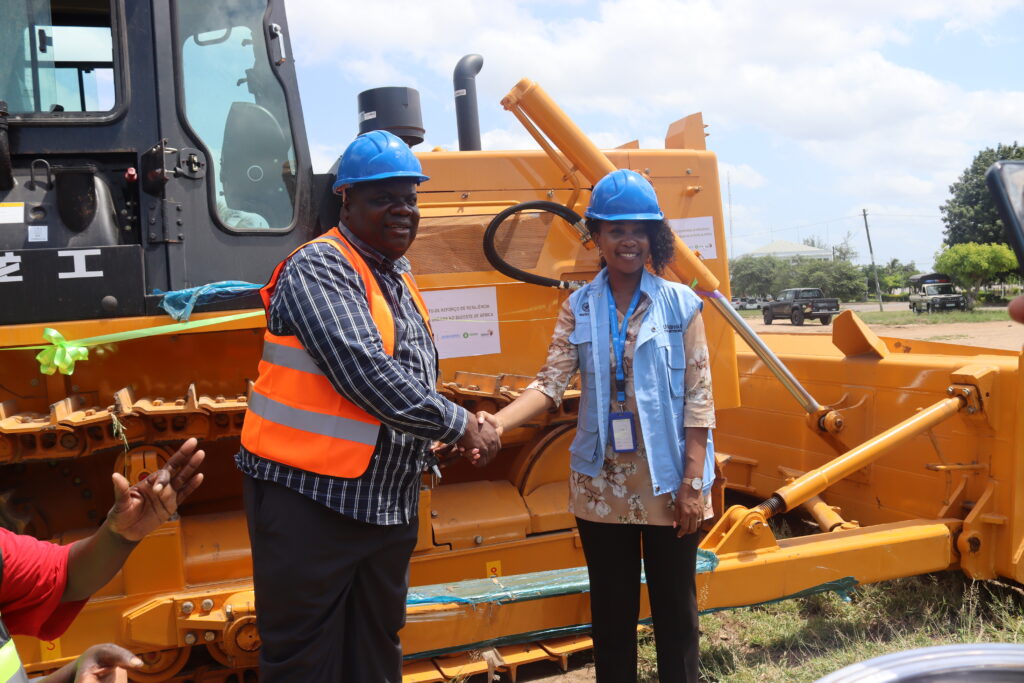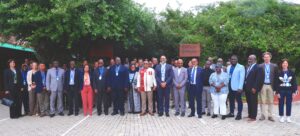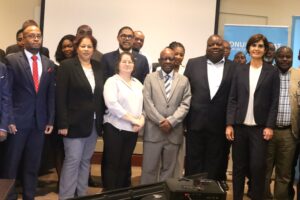
GLOBAL AGREEMENT TO PROMOTE A MORE RESILIENT WORLD
GLOBAL AGREEMENT TO PROMOTE A MORE RESILIENT WORLD June 6, 2025, 1:00 pm DiMSUR, Comoros, Madagascar, Malawi, Mozambique, South-South Cooperation COOPERATION WITH A GLOBAL PROFILE
Chókwè remains committed to its efforts towards Urban Climate Resilience
March 13, 2024, 11:00 am
DiMSUR, AF, Mozambique
Chókwè, 06 March 2024 – The haunting aftermath of the catastrophic floods of 2000 still grips Chókwè, serving as a stark reminder of its vulnerability to natural disasters. Nestled in a low-lying terrain, the city grapples with its coping capacity as it confronts recurrent flooding during the rainy season.
Nevertheless, amidst these challenges, Chókwè has made significant progress in reducing disaster risks and strengthening its climate resilience. The project “Building Urban Climate Resilience in South East Africa”, financed by the Adaptation Fund (AF) and implemented by UN-Habitat in partnership with four national governments – Madagascar, Malawi, Mozambique and Comoros, Oxfam and the Regional Centre of Excellence in Disaster Risk Management, Sustainability and Urban Resilience (DiSMUR), is transforming the city of Chókwè into a beacon of urban resilience.
This ambitious effort launched by UN-Habitat began in 2013, in line with the visionary 2030 Agenda, embraced the “leave no-one behind” approach, a fundamental part of its mission. Today, this aspiration has transcended mere rhetoricturning this dream into a reality.
In a significant milestone for the city’s climate resilience efforts, the project marked a pivotal achievement with the rehabilitation of the Hydraulic Passage of the main Drainage System of Chòkwé City.

On March 6, 2024, the project achieved a notable breakthrough by delivering a Bulldozer Machine to Chókwè. This essential addition aims to bolster the city’s drainage system management and maintenance, reinforcing Chókwè’s ongoing efforts to fortify its urban resilience against environmental challenges.
Speaking at the ceremony to officially hand over the Bulldozer, the Mayor of Chókwè, José Moiane, expressed his gratitude for the initiative, recognizing its value in cleaning the drainage channels and managing the drainage system, which ensures a better quality of life for citizens.
“With the periodic maintenance of the drainage system, we will open new ditches to ensure that water doesn’t flood the city, in order to ensure a better quality of life for the residents, as we all join forces to make everyone feel like they really belong to this city,” said the mayor.
The official handover ceremony emphasised the crucial role of the community and local leaders in reshaping the landscape of Chókwè city. Márcia Guambe, the esteemed Project Manager, representing UN-Habitat at the event, commended the collective effort of the community members/beneficiaries in identifying solutions to the municipality’s challenges, reaffirming UN-Habitat’s commitment to promote sustainable urbanization capable of withstanding the challenges that come with climate change.

“We don’t want to stop here, we want to continue working with other local governments and cities that face these or similar vulnerabilities, to promote this participatory approach, in which people are at the centre of planning, managing and building the resilience of their cities,” said Márcia Guambe, Project Manager.
Furthermore, amidst the ceremony, Romão Xavier, the representative for Oxfam, highlighted the significance of the Bulldozer Machine for local sustainability. Xavier articulated “It represents much more than a mere machine, it embodies a critical aspect of the project – sustainability”.
Before the official handover of the Bulldozer, the Municipality of Chókwè and its implementing partners, held a quick meeting to discuss the progress of the project, the achievements, and the sustainability aspect of each intervention of the project.

GLOBAL AGREEMENT TO PROMOTE A MORE RESILIENT WORLD June 6, 2025, 1:00 pm DiMSUR, Comoros, Madagascar, Malawi, Mozambique, South-South Cooperation COOPERATION WITH A GLOBAL PROFILE

DIMSUR – A RELEVANT ACTOR BUILDING RESILIENCE IN SOUTHERN AFRICA A Regional Workshop to showcase the successes of an ambitious project August 26, 2024, 1:00

DiMSUR´S TECHNICAL CAPACITY RECOGNIZED IN EAST AFRICA: ELDORET, THE CITY OF CHAMPIONS August 15, 2024, 3:00 pm DiMSUR, Kenya Eldoret, 15 August 2024 – On

Mozambican government launches process to draw up a Regulation for Urban Disaster Risk Management and Climate Resilience March 26, 2024, 3:00 pm DiMSUR, AF, Mozambique
Headquarter in Maputo and Sub-Units in Member States
University Eduardo Mondlane Campus (UEM)
Julius Nyerere Avenue, #3453
Sciences Faculty – Physics Department, 2nd Floor
Maputo – Mozambique
Tel: +258 (84) 0531199
secretariat@dimsur.org |www.dimsur.org
